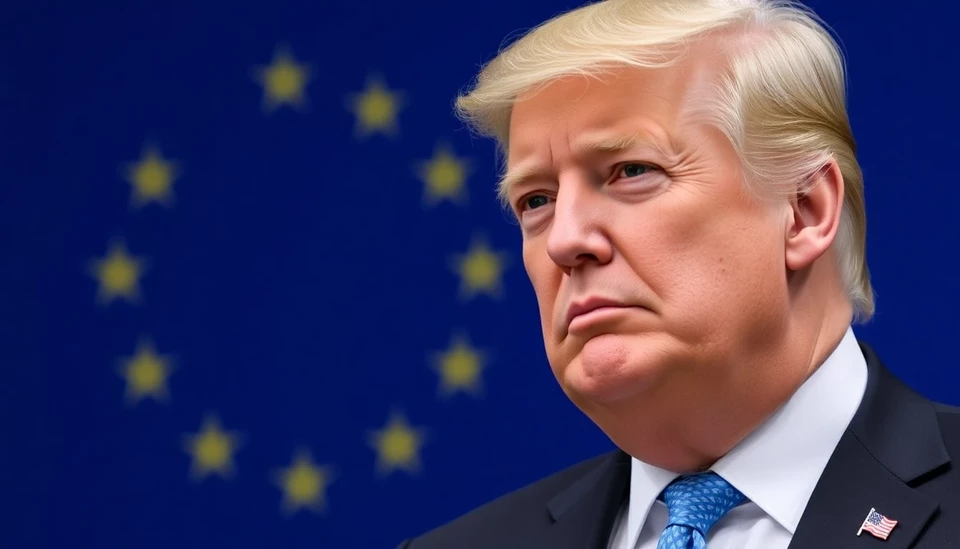
In a move that has sparked significant controversy, the European Union has publicly condemned former President Donald Trump's proposed plan for reciprocal tariffs, branding it as a "step in the wrong direction." The proposal, which aims to impose tariffs on goods imported from nations that apply levies on U.S. exports, has raised alarms among some of America's closest trading partners.
The plan came to light during a recent discussion among trade officials, where Trump emphasized the necessity of protecting American manufacturing by ensuring that foreign nations do not gain an unfair advantage. This move echoes past protectionist approaches that Trump has advocated, which have often led to strained relations with allies and trading partners alike.
European leaders assert that the introduction of such tariffs could lead to retaliatory measures, thereby sparking trade wars that could ultimately harm economies on both sides of the Atlantic. The EU's stance highlights a commitment to multilateral trade agreements and a belief that open trade fosters growth and cooperation rather than division.
Moreover, the European Commission's trade spokesperson articulated that "the best way forward is to engage in constructive dialogue rather than resort to unilateral tariffs that only serve to exacerbate tensions." This perspective underscores the EU's commitment to diplomacy over economic confrontation, positioning them as advocates for a more cooperative approach to international trade.
As discussions in Washington continue and debates about the implications of these tariffs unfold, it remains uncertain how this will impact not only U.S. relations with Europe but also global trade dynamics. Economists warn that tariffs could lead to increased prices for consumers and could stymie economic recovery efforts, which are still ongoing in the wake of the pandemic.
The situation is being closely monitored by various sectors, including manufacturing, agriculture, and technology, all of which could be significantly affected by changes in trade policy. The potential for job losses and economic downturns has raised concerns that far outweigh potential gains from protecting certain industries.
In light of this tumultuous backdrop, key stakeholders are urging policymakers to reconsider the timing and implications of implementing such a tariff strategy. The hope among many is that cooler heads will prevail, leading to a more balanced approach that aims to bolster U.S. manufacturing without isolating crucial allies in the global marketplace.
As the situation develops, the world watches closely to see how the United States will navigate its trade policies under the former administration's influence. The outcome will undoubtedly shape not only the economic landscape but also responsive measures from other countries as they adjust to the realities of an increasingly protectionist stance.
In conclusion, the EU's discontent with Trump's tariffs highlights a crucial juncture in international trade relationships, where the balance between national interests and global partnerships hangs in the balance.
#TrumpTariffs #EUTariffReaction #GlobalTrade #EconomicPolicy #TradeWar #InternationalRelations #Manufacturing #USTradePolicy #Tariffs
Author: Daniel Foster




